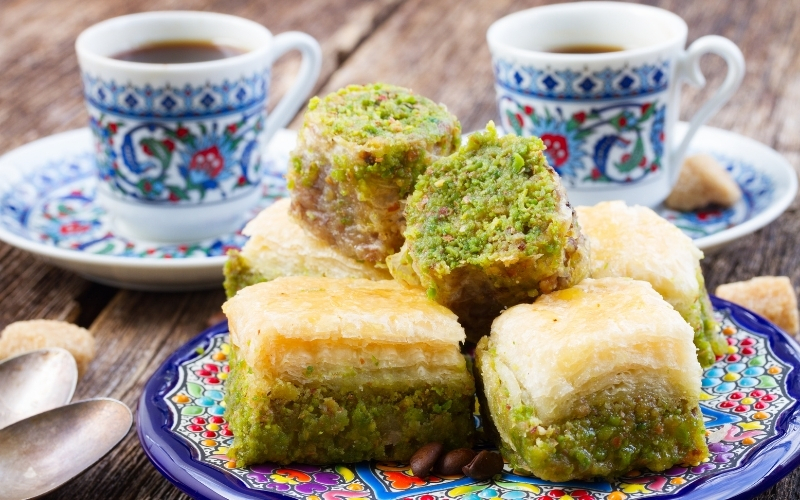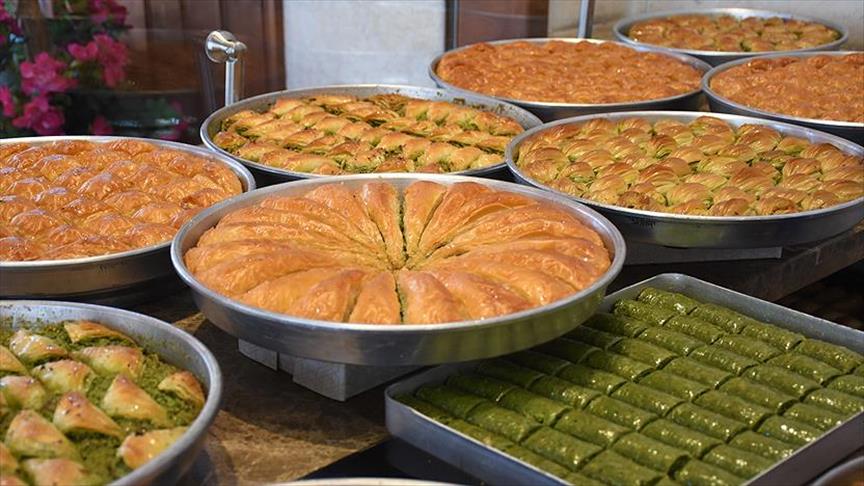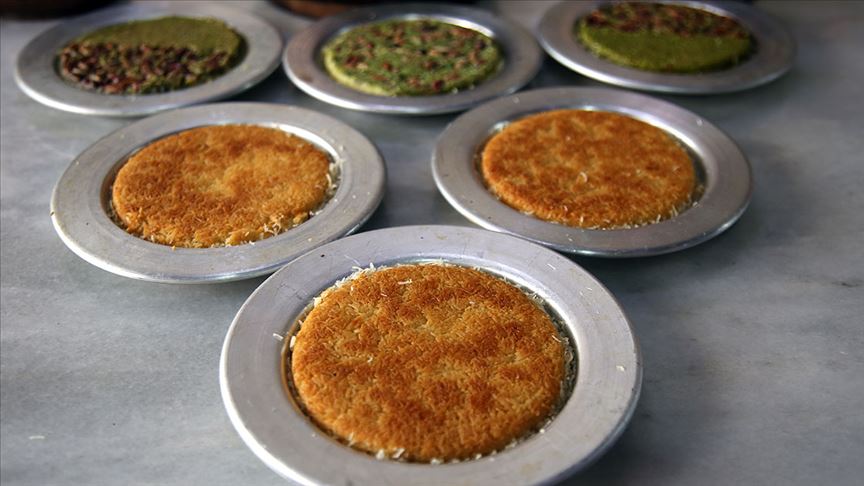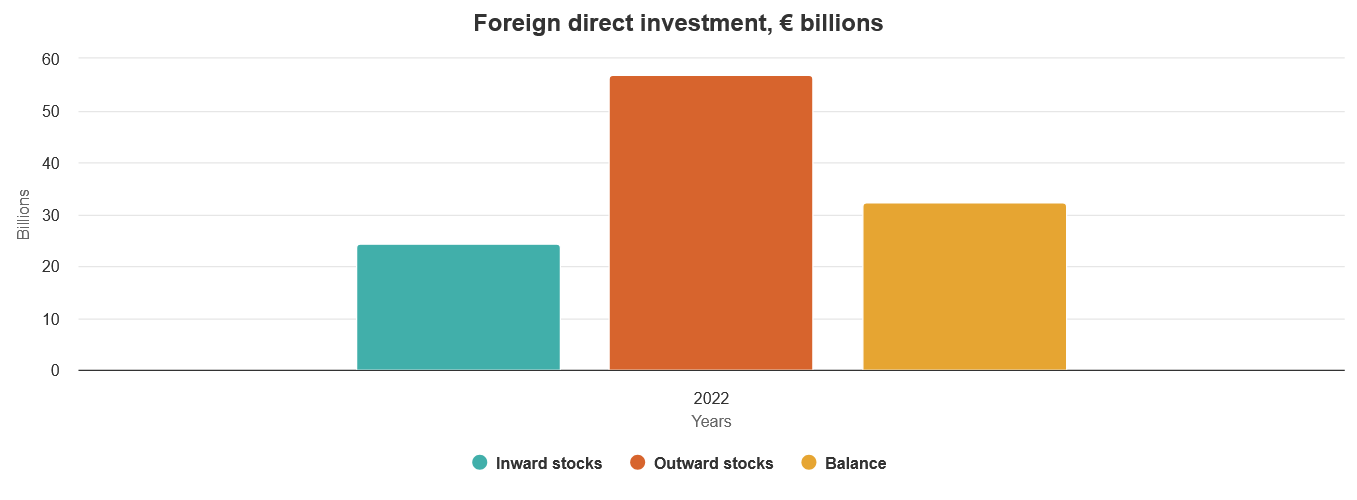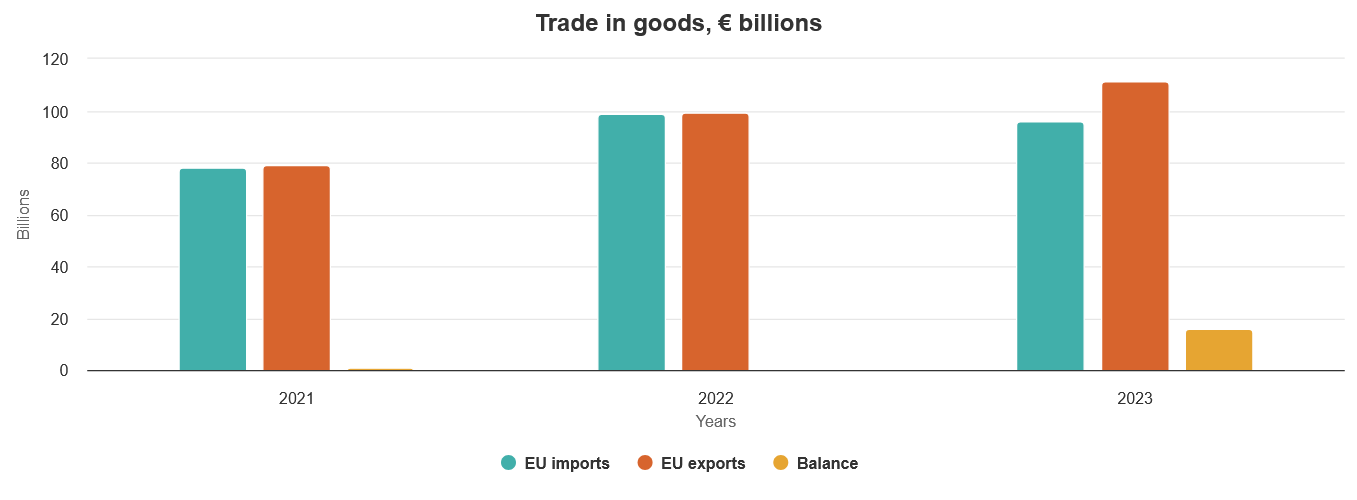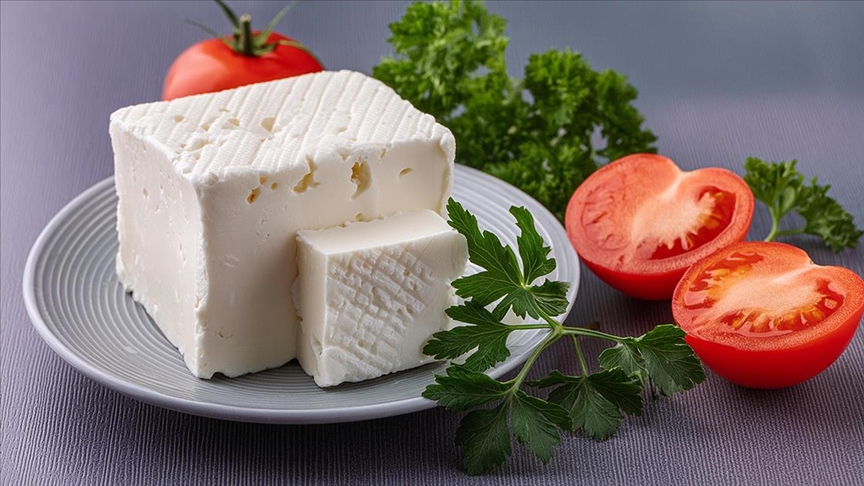EU honors 26 Turkish foods with protected status
Delicious Gaziantep Baklava served with Turkish coffee. (Photo via X)
September 06, 2024 12:22 PM GMT+03:00
The European Union has officially granted protected designation of origin (PDO) status to 26 Turkish foods, ensuring the recognition and protection of these regional specialties.
More Turkish products are on the way to receiving PDO status, according to Agriculture and Forestry Minister Ibrahim Yumakli.
The PDO certification guarantees that these products are produced, processed and prepared in specific regions, using traditional methods.
Highlights of Türkiye’s PDO products
Among the products awarded PDO status are popular Turkish delicacies such as Antep Baklava and Milas Olive Oil, along with unique regional items like Bursa Black Fig and Ezine Cheese.
Antep Baklava, awarded a protected designation of origin status by the EU, displayed at a local bakery. (AA Photo)
Broad range of Turkish foods with PDO status
So far the list of 26 Turkish products includes:
- Antep baklava
- Aydın inciri (Aydın fig)
- Aydın kestanesi (Aydın chestnut)
- Bayramic beyazi (Bayramic nectarine)
- Malatya kayisisi (Malatya apricot)
- Milas zeytinyagi (Milas olive oil)
- Taskopru Sarimsagi (Taskopru garlic)
- Giresun tombul findigi (Giresun hazelnut)
- Antakya kunefesi (Antakya's crispy cheesy dessert)
- Suruc nari (Suruc pomegranate)
- Caglayancerit cevizi (Caglayancerit walnut)
- Gemlik zeytini (Gemlik olive)
- Edremit zeytinyagi (Edremit olive oil)
- Milas yagli zeytini (Milas oily olive)
- Ayas domatesi (Ayas tomato)
- Maras tarhanasi (Fermented food from Maras)
- Edremit korfezi yeşil cizik zeytini (Edremit gulf green scratched olive)
- Ezine cheese
- Aydin memecik zeytinyagi (Aydin memecik olive oil)
- Safranbolu safrani (Safranbolu saffron)
- Araban Sarimsagi (Araban garlic)
- Osmaniye yer fistigi (Osmaniye peanut)
- Bingol bali (Bingol honey)
- Bursa seftalisi (Bursa peach)
- Huyuk Cilegi (Huyuk strawberry)
- Bursa Siyah İnciri / Bursa Siyahı (Bursa Black Fig)
The crispy, cheesy dessert kunnefe is displayed in traditional plates, ready to be served. (AA Photo)
Cultural and economic impact
This recognition by the EU not only highlights Türkiye’s rich gastronomic heritage but also strengthens the market position of these products internationally. By obtaining PDO status, producers can ensure that their products maintain authenticity, quality, and a connection to their geographic origins.
Additionally, this status provides economic benefits to local producers by boosting the products' visibility and ensuring market protection within the EU. It can also highlight Türkiye's large volume of exports and help brand Turkish products.
Türkiye - EU trade relations
- The EU-Türkiye Customs Union has enabled bilateral trade to increase significantly, reaching a record high of almost 206 billion euros ($228 billion) in 2023.
- Türkiye became the EU’s fifth largest trade partner in 2023, representing 4.1% of the EU’s total trade in goods with the world, compared to 3.3% in 2022.
- The EU’s exports of goods to Türkiye totaled 111 billion euros in 2023. The EU’s imports of goods from Türkiye amounted to 95.5 billion euros. On both sides, exports of motor vehicles, machinery, and electrical equipment lead the way.
Data via European Commission
- The EU stands as Türkiye’s largest goods import and export partner by a significant margin. In 2023, 41% of Türkiye’s exported goods were destined for the EU, while 29% of the country’s imported goods originated from the EU.
- Total trade in services between the EU and Türkiye amounted to 35 billion euros in 2022, representing a significant increase from 24.2 billion euros in 2021. This accounted for 1.4% of the EU’s total trade with the world in services. Transport and travel services are the EU’s most imported services from Türkiye, and transport and ICT services are the EU’s most exported services to Türkiye.
Data via the European Commission
Safeguarding tradition of Turkish products
The PDO certification is significant for preserving the traditional production methods that have been passed down through generations in various regions of Türkiye.
Ezine cheese that earned EU's PDO status. (AA Photo)
Products such as Malatya kayisisi (Malatya apricot) and Ezine cheese represent centuries of local craftsmanship and expertise, securing Türkiye’s place in the global culinary landscape.
September 06, 2024 12:22 PM GMT+03:00
